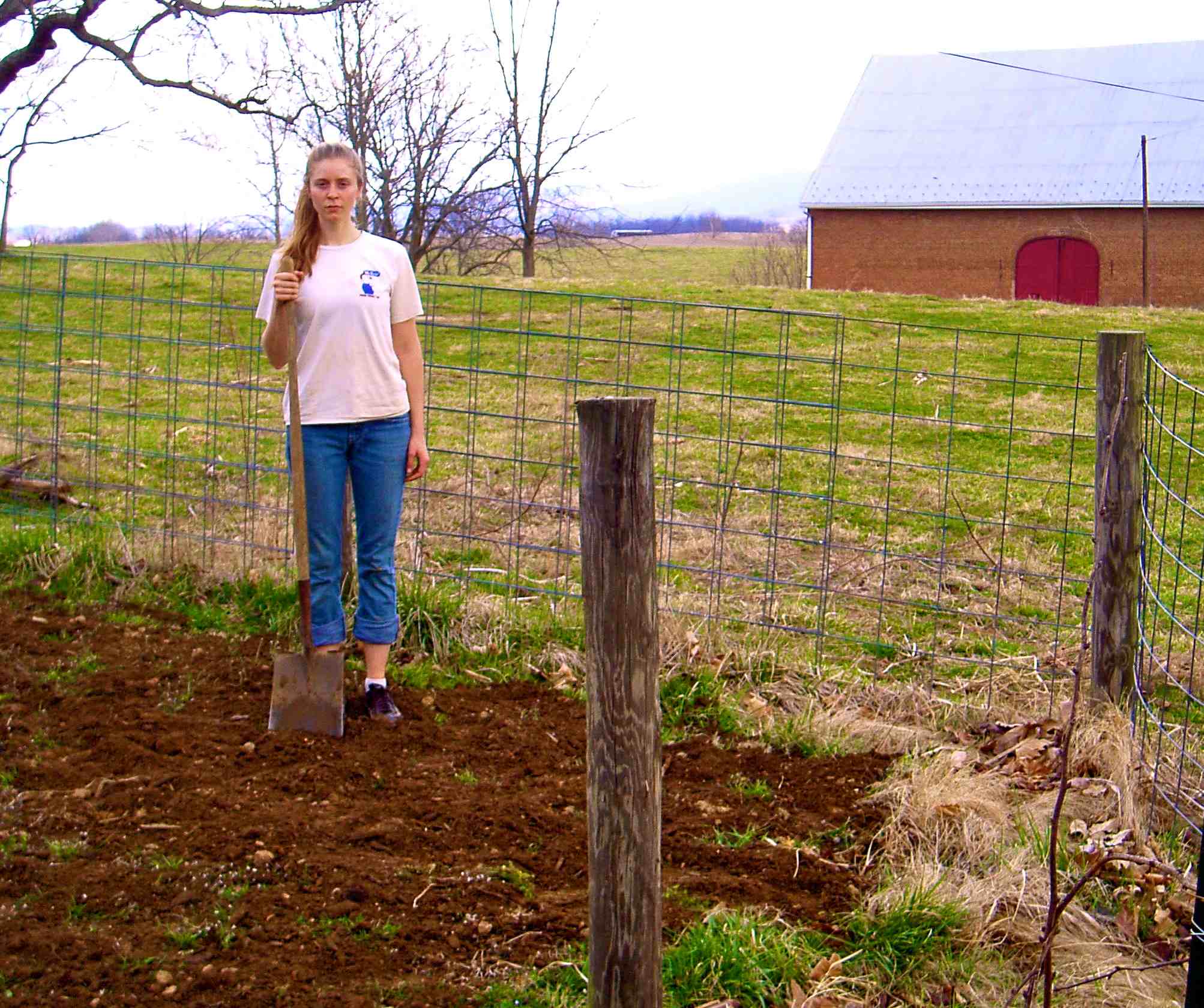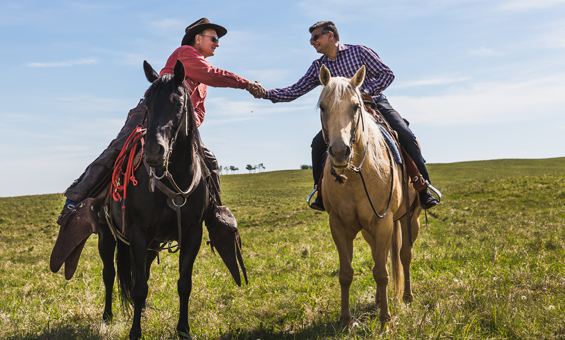
You’ve dreamed of becoming a farmer, growing food not just for yourself, but for your greater community. You want to live a life in harmony with the seasons, the soil, the moment. It’s a life of physical work, intellectual challenges, and uncertain finances, but you know that you’re ready. All that’s left is to trade in your suit and tie for sturdy boots and a dilapidated hat.
Congratulations. The world needs you. According to this article in the Atlantic, there are currently more bus drivers than farmers in the United States. While at first glance this might seem like an arbitrary statistic, consider this question: which is more likely, a bus driver needing to eat, or a farmer needing a bus ticket? Food ranks in upper echelon of human needs, right beside oxygen, sleep, and cuddling with your sweetheart.
The planet needs nutritious food, and that requires thoughtful, intelligent people to grow it. So if you’re genuinely considering farming as a career, tape these 8 rules to your refrigerator, tack them to your barn door, or commit them to memory. After fifteen years of running my own farm, these points were hard won, but continue to serve me well. Following them might not guarantee success, but they will certainly put you on the path to economic and agricultural sustainability.
The Eight Rules of Starting Your Own Farm

Rule #1: Avoid Debt!
Why is this #1? Why does it have an exclamation point after it? Because—attention please—it’s really important! If there’s one thing our national housing crisis has reinforced, it’s how economically debilitating debt can be for the average person. Farmers are not immune to these challenges. Many great producers have abandoned their farming dreams because they simply couldn’t pay their loans when the bank came calling.
In a nutshell, debt (borrowing money, with interest) allows us to accelerate our goals, turning dreams of tomorrow into realities of today. While borrowed money might buy us a tractor, a new barn, or even the land we’ll be farming, experience, the most valuable farming asset of all, cannot be purchased.
Experience doesn’t come with a Bachelors Degree in Agriculture, and it certainly doesn’t come from a book. Agriculture is fraught with uncertainties, surprises, and intellectual challenges. And that’s just before lunch. Adding monthly payments to this intimidating list financially handcuffs most people right from the start.
So, does this mean ‘never take on debt’? Definitely not. There are plenty of times when acquiring debt makes sense. As you gain farming experience, and create reliable cash flow in your business, those opportunities (or necessities) will become clearer. In the meantime, embrace this generalization: avoid debt as much as possible.
Rule #2: Allow Yourself The Opportunity To Fail

Wait a minute. This was supposed to be about not failing, right? Ironic, I know. Bear with me.
Our culture seems obsessed with failure, simultaneously terrified and captivated with the concept. I personally know people who spend their days avoiding the ‘humiliation’ of failure at all costs. Some of these people fear failure so much, they never attempt to accomplish anything. The thought of failure paralyzes them.
If failure is a major concern to you, here’s a spoiler: in farming, you WILL fail. 100% chance. In fact, with apologies to Benjamin Franklin, besides death and taxes, it’s your only guarantee of anything when it comes to farming.
But here’s what no one ever told me. It’s okay to fail. Moreover, in farming, it’s important to fail. While painful at first, failure can be an enormously useful tool. It helps us learn our personal limits of time and energy. It’s an instrumental timesaver in the long run, letting us know what works well, and what’s a boondoggle. Failure provides us perspective for future enterprises, and makes us intellectually stronger, more emotionally resilient.
So, thumb your nose at that sagging bookshelf loaded with self-help books, telling you you’re not a failure. Yes you are… get out there and fail! But while you’re failing, fail well; fail gracefully and thoughtfully. It’s the only sure way to recognize success when it finally arrives.
Rule #3: Identify Your Market Before You Start Farming

Perhaps you want to grow watermelons, or start a sauerkraut business, or even sell wool to local knitters. Fabulous. I like watermelon, sauerkraut and knit caps as much as the next guy. But how are you going to find customers like me? Do I live in your neighborhood, or 500 miles away? How will you find others like me? What will you do if I buy ALL of your products, and you’re sold out for six months? What will you do if I buy NONE of your stuff, and you’ve got a barn full of it?
Before you plant that first seed, jar your first kraut, or shear your first ewe, take the time (lots, lots of time) to figure out where you’re going to sell your products, who is going to buy them, and how you’re going to do it. Once you’ve done this, create a back up plan. Then, come up with another backup plan. Chances are, you’re going to need them.
For small and niche producers, an enormous amount of effort is spent finding our own customers. This is every bit as important as growing the food to begin with, because without appropriate sales channels, our fresh produce will languish. When all those watermelons ripen at the exact same moment, you’ll need a place to sell them, and quickly. Have a marketing plan ready well in advance.
Rule #4: Match The Land To Its Suited Use

Simply put, we can force our human dreams onto the land, or we can work with what nature gives us. On our farm, wild turkeys, deer, cotton tailed rabbits and grey squirrels naturally flourish. As such, it’s no coincidence that we’re able to raise free-range chickens, sheep, cattle and pigs on the same land. While the correlations may not be identical, there is a nice pattern here, an environment that naturally fosters both vegetarian grazers and omnivorous foragers.
Conversely, a few years back, we tried to raise free-range ducks on pasture, and learned the hard way that they evinced their waterfowl instincts by turning our fields into ponds. They accomplished this by methodically tipping over our automatic watering troughs (it’s a long story… but trust me, they did it), creating muddy, sloppy swimming holes in the middle of our pastures that we dubbed ‘quack mires’. In their own way, the ducks were telling us that they belonged near water, not out on grass. We eventually ‘listened,’ stopped raising ducks, and have been happier ever since.
Rule #5: Grow Your Passion

Everyone knows that farming is hard work, so do yourself a favor: grow something that you love. Want to grow blueberries? Then grow blueberries, for Pete’s sake. You might be the only blueberry grower in a county filled with turnip farms, but you’ll be happier for it. If you focus on your passion, it will help mitigate those difficult days when the sledding gets rough, and things don’t go your way.
It may seem like common sense, but often we find our decisions driven more by finances, tradition, or inertia than doing something that we simply love. Go out on a limb, and grow heirloom apples if you want. Consider it your first reward. There will be more.
Rule #6: Set Reasonable Goals
Yes, yes, we all know that you were a double major, the captain of the fencing team, and turned down a Fulbright to construct Mongolian yurts in Peace Corps. You’re talented… we get it! Now, Ms. Superpants, repeat after me:
“It’s okay if I can’t feed the entire state of Nebraska, so long as I can supply my local market. The world won’t end if I don’t make ‘X’ number of dollars this year, as long as all of my bills are paid. I’m not less of a person if I don’t add an additional enterprise, until I get really good at the 3 other enterprises I’m already trying to master.”
Listen up, you workaholics: it’s even acceptable to take Tuesday afternoons off to drink iced tea and read a book, especially if you work all weekend (like I do). Take care of yourself. Burnout is big in farming. You already know that farming is physically taxing, with unique emotional demands. Find your pace. Visualize a fifty-year career, and set annual, achievable goals that will get you there. Check in with yourself frequently. And by all means, if you raise flowers for a living, be sure to “stop and smell the petunias” from time to time. Or the daffodils. Whatever… I raise pigs, lay off me.
Rule #7: Don’t Worry About What Other People Think

In 1994, when I was twenty years old, I found myself talking to an older farming couple at a local picnic. We both raised cattle for a living, but they sold their animals straight to corn-fed feedlots. They asked me about my farming ambitions, and I told them of my dream to sell 100% grass-fed beef. The cattle would be completely organic, and I’d direct market the meat myself. I told them our farm could provide food for several hundred families, once it really got going.
Their reaction? I had barely finished speaking when they turned to each other, made eye contact, and burst into uncontrollable laughter. I must have turned ten shades of red.
Eighteen years later, despite this withering response (they apologized for their behavior after they finished laughing, bless their hearts), our farm has accomplished these goals and much, much more. If I had worried what my neighboring farmers thought of me, I certainly wouldn’t be sitting here now, typing this list. Believe in yourself, and just go for it.
As for that couple? Five years ago, they put a sign up at the end of their lane, “Free-Range Beef for Sale.” The sign is still out there at this very moment. Pardon me while I indulge in a moment of uncontrollable laughter.
Rule #8: Read. Ask Questions. Share Your Knowledge.
Don’t like to read? Start reading. Shy? Get up near the teacher if you want to learn anything. Have a chip on your shoulder? Better to lose it now, before Mother Nature loses it for you.
Last but not least, be generous with your knowledge, especially with people who want to learn from you.





Great list, I’d add a couple caveats to #7. 1) Find mentors that are succeeding in what you are trying to do, and listen very carefully to their advice! 2) Be all about your customer, to succeed at #3 you have to know and care what your customer wants, and adapt to it. and finally 3) Cultivate relationships with your farming neighbors. I agree, don’t worry about them laughing t your enterprises, but still be good neighbors, that is a wonderful part of the rural life. Plus to stay away from debt, there are wonderful synergies that can bring equipment costs down: borrow/rent the tractor, trailer or whatever piece of equipment if you only need it a couple times a year, hire the services, offer yours as a side job, find people who will cover chores if you want to go to a conference, who will help you get the cows in…. And many opportunities for great friendship which can help from making farming a lonely enterprise.
EXCELLENT TIPS
Comments are closed.